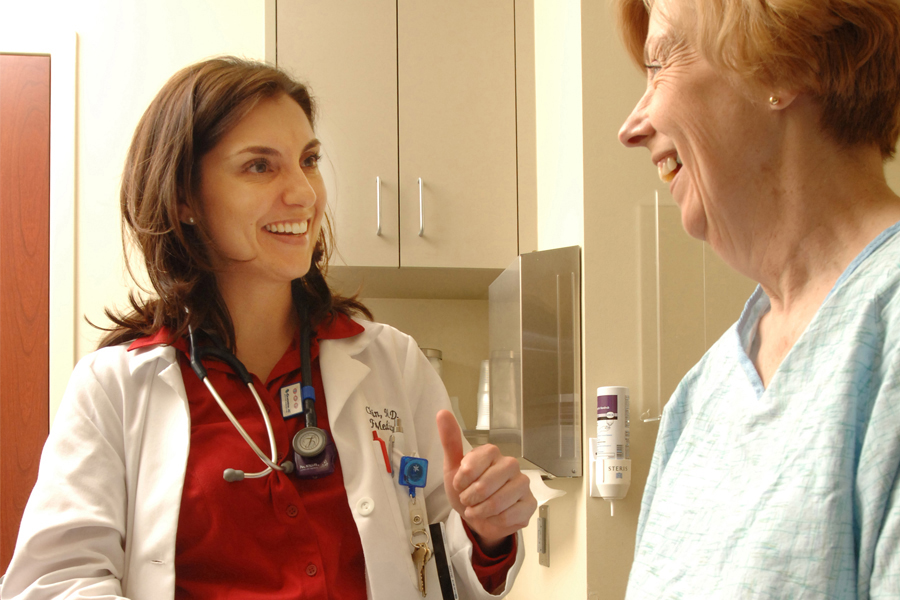
Rollout of the COVID-19 vaccine is continuing, but some people are hesitant to get vaccinated against the disease.
Dr. Christie Alexander, an associate professor in the Department of Family Medicine and Rural Health in the Florida State University College of Medicine and a past president of the Florida Academy of Family Physicians, recently participated in an expert panel about how to win over vaccine skeptics.
She is available to comment to media on vaccine hesitancy and can be reached at christie.alexander@med.fsu.edu or at (850) 508-4006.
Selected questions and answers from Dr. Alexander’s participation in the expert panel have been edited for clarity and appear below:
As a family physician, what kind of questions are you hearing behind people’s vaccine hesitancy and what do you feel like we can learn from what you are hearing from patients?
“Some of the biggest things that we are hearing have to do with just how quickly people feel the vaccine was made — although we in science know that this has been a long time coming. We hear a lot in practice — ‘It’s just so quick, I want to see what happens, I want to see how other people feel when they get it’ — that sort of thing.
“The other thing I hear a lot is fear of the side effects. There has been a lot of talk about that, that fear of feeling bad for a few days after getting the vaccine and not understanding that’s the hump to get over that keeps you from getting so sick from COVID itself.
“There is also the idea that people don’t want to feel like they are guinea pigs. That goes along with how quickly they feel the vaccine was made. And then very few and far between do I personally hear conspiracy theories like ‘They’re inserting genetic materials into my system’ or things like that.”
Digging a bit further into some of the objections you’re hearing from patients, specifically the idea of people getting the vaccines now being sort of the guinea pigs — tens of thousands of subjects were part of the clinical trials, correct? That’s an extraordinarily large group to be done simultaneously around the world. Can you tell us a little bit more about that? When you speak to people, is that something you talk about?
“That is definitely something that I talk to patients about when they bring that up as a concern. Tens of thousands of people participated in clinical trials before the vaccines were authorized for emergency use. All of those people had to pass through the various phases of the trials in order for the vaccines to reach emergency use authorization by the U.S. Food and Drug Administration.
“In addition to that, with these particular vaccines, scientists have been working on variations of this for coronavirus and various other viruses for years. The thing that people have to realize is that when there’s a global pandemic, everything gets put on hold. These vaccines became the primary focus for everyone globally. Patients ask, ‘Why was it taking so long beforehand?’ That’s because we were working on other things. COVID-19 vaccines became the primary thing, the most important thing, for the health of the world.
“In addition, I’ll even use myself as the example and tell them I’ve been vaccinated and many of their healthcare workers have received it as well without any long-term problems.”
What do you say to skeptics who might say that things are ever-changing, and therefore, why not wait a little while?
“I would say that’s true — things are always changing, and if you choose to wait, I understand that but know that the risk of coronavirus is still very real. COVID-19 is very real, and we are still seeing — although the numbers are decreasing — we are still seeing deaths. So the quicker we can get people immunized, the quicker we can feel safe knowing that we are not spreading the disease, that we are controlling it so that we don’t have another hotspot or another uptick. We can protect ourselves moving into this new normal going forward.”




